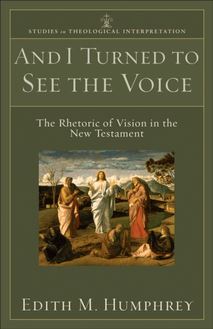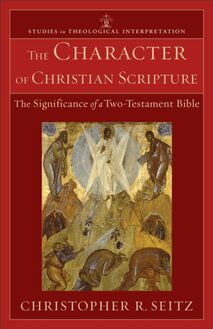-
 Univers
Univers
-
 Ebooks
Ebooks
-
 Livres audio
Livres audio
-
 Presse
Presse
-
 Podcasts
Podcasts
-
 BD
BD
-
 Documents
Documents
-
- Cours
- Révisions
- Ressources pédagogiques
- Sciences de l’éducation
- Manuels scolaires
- Langues
- Travaux de classe
- Annales de BEP
- Etudes supérieures
- Maternelle et primaire
- Fiches de lecture
- Orientation scolaire
- Méthodologie
- Corrigés de devoir
- Annales d’examens et concours
- Annales du bac
- Annales du brevet
- Rapports de stage
La lecture à portée de main
Vous pourrez modifier la taille du texte de cet ouvrage
Découvre YouScribe en t'inscrivant gratuitement
Je m'inscrisBody, Soul, and Human Life (Studies in Theological Interpretation) , livre ebook
Découvre YouScribe en t'inscrivant gratuitement
Je m'inscrisEn savoir plus
Vous pourrez modifier la taille du texte de cet ouvrage
En savoir plus

Description
Sujets
Informations
| Publié par | Baker Publishing Group |
| Date de parution | 01 juillet 2008 |
| Nombre de lectures | 0 |
| EAN13 | 9781441210753 |
| Langue | English |
Informations légales : prix de location à la page 0,0691€. Cette information est donnée uniquement à titre indicatif conformément à la législation en vigueur.
Extrait
Series Editors
Craig G. Bartholomew
Redeemer University College
Joel B. Green
Fuller Theological Seminary
Christopher R. Seitz
Wycliffe College, University of Toronto
Editorial Advisory Board
Gary Anderson
University of Notre Dame
Markus Bockmuehl
University of Oxford
Richard Hays
Duke University Divinity School
Christine Pohl
Asbury Theological Seminary
Eleonore Stump
Saint Louis University
Anthony Thiselton
University of Nottingham
University of Chester
Marianne Meye Thompson
Fuller Theological Seminary
Kevin Vanhoozer
Trinity Evangelical Divinity School
John Webster
University of Aberdeen
Jim Kinney
Baker Academic
Copyright © 2008 Joel B. Green
Published by Baker Academic a division of Baker Publishing Group P.O. Box 6287, Grand Rapids, MI 49516-6287 www.bakeracademic.com
Ebook edition created 2012
All rights reserved. No part of this publication may be reproduced, stored in a retrieval system, or transmitted in any form or by any means for example, electronic, photocopy, recording without the prior written permission of the publisher. The only exception is brief quotations in printed reviews.
ISBN 978-1-4412-1075-3
Library of Congress Cataloging-in-Publication Data is on file at the Library of Congress, Washington, DC.
Unless otherwise stated, Scripture quotations are taken from the NEW REVISED STANDARD VERSION BIBLE, © 1989, by the Division of Christian Education of the national Council of the Churches of Christ in the U.S.A., and are used by permission. All rights reserved.
‘Few biblical interpreters have delved as deeply into the science of the human brain as Joel Green. Here he draws upon that learning in conversation with Scripture to put forth a fresh picture of human existence, one that makes sense from both perspectives. He does not shy away from hard questions, especially those about life and death, body and soul.’
Patrick D. Miller , Charles T. Haley Professor of Old Testament Theology Emeritus, Princeton Theological Seminary
‘In this outstanding work, the author provides a scholarly and thoroughly biblical analysis of human personhood in dialogue with the neurosciences. This book is likely to provide the definitive overview of this topic for many years to come.’
Denis R. Alexander , Director of The Faraday Institute, St. Edmund’s College, Cambridge
‘If you think nothing new ever happens in theology or biblical studies you need to read this book, an essay in “neurohermeneutics”. Green shows not only that a physicalist anthropology is consistent with biblical teaching, but also that contemporary neuroscience sheds light on significant hermeneutical and theological questions.’
Nancey Murphy , Professor of Christian Philosophy, Fuller Theological Seminary
‘Joel Green serves as the vanguard of interdisciplinary research on this topic. No one combines the requisite background in theology, biblical studies, and the natural sciences as adeptly as Green, and with the critical thinking needed to move along the interstices of these disciplines. Indeed, he succeeds at closing the gaps between these disciplines. In this volume, we see him examining the biblical data afresh from his monist perspective, surveying the convergence of biblical studies and the neurosciences on a number of conclusions, and exploring the implications of monism for the church and for our understanding of salvation, mission, and life-after-death. This “progress report” is another timely and welcome contribution from Professor Green.’ Bill T. Arnold , Paul S. Amos Professor of Old Testament Interpretation, Asbury Theological Seminary
‘Some are students of the Bible. Others are students of neuroscience. Joel Green is both and more. He’s also a student of the human condition. Oftentimes students of the Bible and students of the neurosciences tell radically different and ultimately irreconcilable stories about human nature – what we are, who we are and what we’re made for. In Body, Soul and Human Life Joel Green helps us to listen more attentively both to the Bible and to the unfolding music of the neurosciences. What you hear may surprise you. Far from telling different and irreconcilable stories about human nature, Joel Green helps us to see that these two sources – the Bible and the neurosciences – actually tell mutually enriching and complementary stories about what it means to be fully human, and fully alive. I heartily recommend it!’ Kevin Corcoran , Lecturer in Philosophy, Calvin College
C ONTENTS
Cover
Title Page
Copyright Page
Endorsements
Dedication
Series Preface
Abbreviations
Preface
1 The Bible, the Natural Sciences, and the Human Person
Humanity and Human Identity in Biblical Theology
Traditional Theological Anthropology and Contemporary Challenges
Why Science Matters
Some Definitions
In Anticipation
2 What Does It Mean to Be Human?
Distinctively Human?
Clearing the Deck
“In the Image of God He Created Them” (Gen 1:27)
“To the Measure of the Full Stature of Christ” (Eph 4:13)
Conclusion
3 Sin and Freedom
Challenges from the Natural Sciences
Freedom and Sin: Three New Testament Coordinates
Conclusion
4 Being Human, Being Saved
Questioning Conversion in Luke-Acts
The Neural Correlates of Change
Luke-Acts and “Embodied Conversion”
Concluding Reflections
5 The Resurrection of the Body
Resurrection in Israel’s Scriptures
The Gospel of Luke and the Intermediate State
The Disciples and the Resurrected Jesus (Luke 24:36–49)
The “Resurrection Body” at Corinth
Conclusion
Suggested Reading
Bibliography
Index of Modern Authors
Index of Scripture and Other Ancient Literature
Notes
To Jim Holsinger “A human being fully alive . . .”
S ERIES P REFACE
A s a discipline, formal biblical studies is in a period of reassessment and upheaval. Concern with historical origins and the development of the biblical materials has in many places been replaced by an emphasis on the reader and the meanings supplied by present contexts and communities. The Studies in Theological Interpretation series will seek to appreciate the constructive theological contribution made by Scripture when it is read in its canonical richness. Of necessity, this includes historical evaluation while remaining open to renewed inquiry into what is meant by history and historical study in relation to Christian Scripture. This also means that the history of the reception of biblical texts a discipline frequently neglected or rejected altogether will receive fresh attention and respect. In sum, the series is dedicated to the pursuit of constructive theological interpretation of the church’s inheritance of prophets and apostles in a manner that is open to reconnection with the long history of theological reading in the church. The primary emphasis is on the constructive theological contribution of the biblical texts themselves.
New commentary series have sprung up to address these and similar concerns. It is important to complement this development with brief, focused, and closely argued studies that evaluate the hermeneutical, historical, and theological dimensions of scriptural reading and interpretation for our times. In the light of shifting and often divergent methodologies, the series will encourage studies in theological interpretation that model clear and consistent methods in the pursuit of theologically engaging readings.
An earlier day saw the publication of a series of short monographs and compact treatments in the area of biblical theology that went by the name Studies in Biblical Theology. The length and focus of the contributions were salutary features and worthy of emulation. Today, however, we find no consensus regarding the nature of biblical theology, and this is a good reason to explore anew what competent theological reflection on Christian Scripture might look like in our day. To this end, the present series, Studies in Theological Interpretation, is dedicated.
A BBREVIATIONS
AB
Anchor Bible
ABD
Anchor Bible Dictionary. Edited by David Noel Freeman. 6 vols. New York: Doubleday, 1992.
AGJU
Arbeiten zur Geschichte des antiken Judentums und des Urchristentums
AS
Advances in Semiotics
ASRS
Ashgate Science and Religion Series
BBR
Bulletin for Biblical Research
BChr
Beginnings of Christianity
BECNT
Baker Exegetical Commentary on the New Testament
BETL
Bibliotheca ephemeridum theologicarum lovaniensium
Bib
Biblica
BibOr
Biblica et orientalia
BNTC
Black’s New Testament Commentaries
BThS
Biblisch-theologische Studien
CBQ
Catholic Biblical Quarterly
CIT
Current Issues in Theology
CML
Classics of Medicine Library
CTHP
Cambridge Texts in the History of Philosophy
CurTM
Currents in Theology and Mission
DDCT
Distinguished Dissertations in Christian Theology
DJG
Dictionary of Jesus and the Gospels. Edited by Joel B. Green and Scot McKnight. Downers Grove, IL: InterVarsity, 1992.
DPL
Dictionary of Paul and His Letters. Edited by Gerald F. Hawthorne, Ralph P. Martin, and Daniel G. Reid. Downers Grove, IL: InterVarsity, 1993.
EdF
Erträge der Forschung
ETL
Ephemerides theologicae lovanienses
EvQ
Evangelical Quarterly
FRLANT
Forschungen zur Religion und Literatur des Alten und Neuen Testaments
GNS
Good News Studies
HTR
Harvard Theological Review
Int
Interpretation
JJS
Journal of Jewish Studies
JPsyT
Journal of Psychology and Theology
JPT
Journal of Pentecostal Theology
JPTSup
Journal of Pentecostal Theology: Supplement Series
JSNTSup
Journal for the Study of the New Testament: Supplement Series
KEK
Kritisch-exegetischer Kommentar über das Neue Testament
LCL
Loeb Classical Library
MBPS
Mellen Biblical Press Series
MM
Moulton, James Hope, and George Milligan. The Vocabulary of the Greek Testament. London, 1930. Reprint, Peabody, MA: Hendrickson, 1997.
MNTS
McMaster New Testament Studies
NDBT
New Dictionary of Biblical Theology. Edited by T.D. Alex
-
 Univers
Univers
-
 Ebooks
Ebooks
-
 Livres audio
Livres audio
-
 Presse
Presse
-
 Podcasts
Podcasts
-
 BD
BD
-
 Documents
Documents
-
Jeunesse
-
Littérature
-
Ressources professionnelles
-
Santé et bien-être
-
Savoirs
-
Education
-
Loisirs et hobbies
-
Art, musique et cinéma
-
Actualité et débat de société
-
Jeunesse
-
Littérature
-
Ressources professionnelles
-
Santé et bien-être
-
Savoirs
-
Education
-
Loisirs et hobbies
-
Art, musique et cinéma
-
Actualité et débat de société
-
Actualités
-
Lifestyle
-
Presse jeunesse
-
Presse professionnelle
-
Pratique
-
Presse sportive
-
Presse internationale
-
Culture & Médias
-
Action et Aventures
-
Science-fiction et Fantasy
-
Société
-
Jeunesse
-
Littérature
-
Ressources professionnelles
-
Santé et bien-être
-
Savoirs
-
Education
-
Loisirs et hobbies
-
Art, musique et cinéma
-
Actualité et débat de société
- Cours
- Révisions
- Ressources pédagogiques
- Sciences de l’éducation
- Manuels scolaires
- Langues
- Travaux de classe
- Annales de BEP
- Etudes supérieures
- Maternelle et primaire
- Fiches de lecture
- Orientation scolaire
- Méthodologie
- Corrigés de devoir
- Annales d’examens et concours
- Annales du bac
- Annales du brevet
- Rapports de stage












